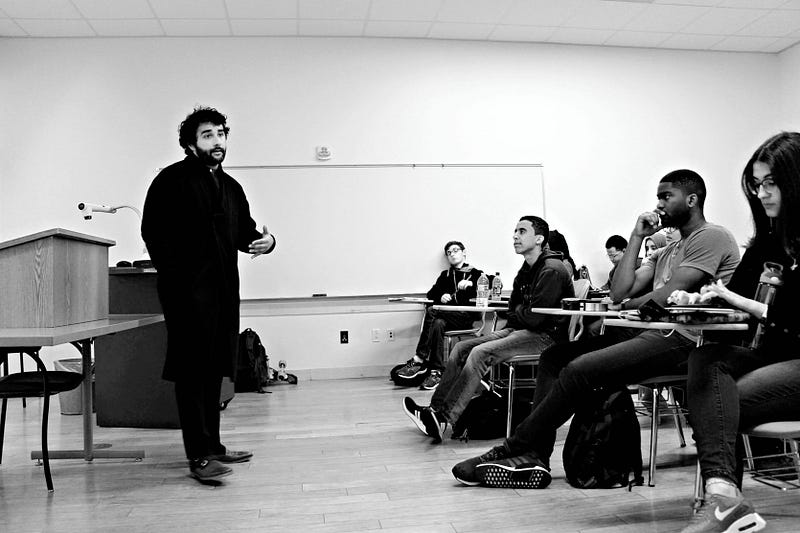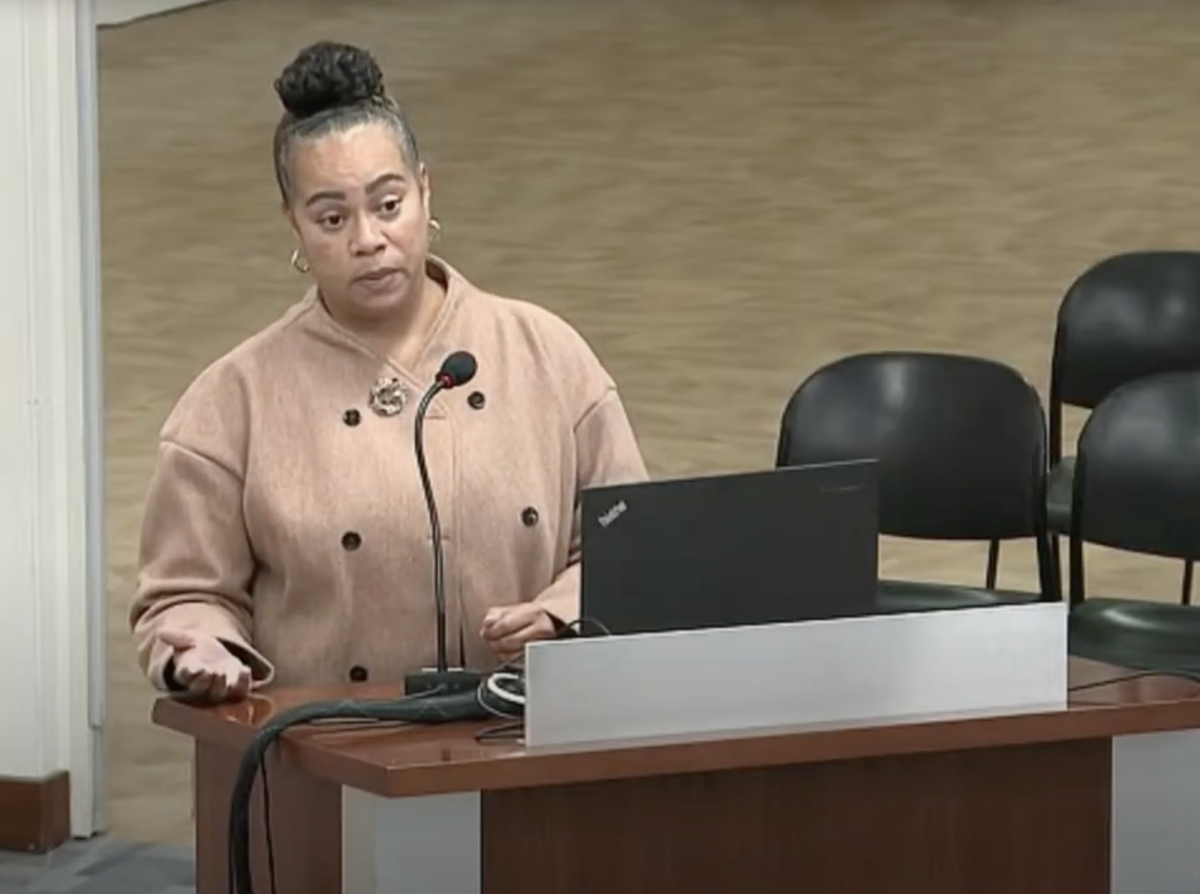By Sarah Carpenter

During “college hour” at Berkeley City College, no classes are held — it’s reserved to function like a lunch hour. But Room 34 was packed with students ready to learn about Islam during college hour on March 19.
The last of three lectures in a series from Muslim scholar Ahmad Rashid Salim, invited by BCC’s Muslim Student Association (MSA), focused on the differences amongst sects within Islam — Shi’a, Sunni, and others.
Muslims believe the first prophet was also the first human. When the first prophet died, it raised the question of who would become the leader of the Muslims. This question is important, Salim said, because “as Muslims, the belief was that there is no other prophet after the prophet.”
The split between sects can be traced back to the decision of who should lead the ummah (community) after the prophet.
“This lecture series was both necessary for us as a community, and the non-Muslim students,” said Fatemeh Saremi, treasurer of the MSA.
The MSA is prolific in event planning. Many of their events, like the “hijab experiment” last semester, are intended to connect with non-Muslim students. The hijab experiment allowed non-Muslim students to try on the headwear, and get a glimpse of what it’s like to see and be seen through it.
Last semester, they presented a Q&A panel of Muslim students, and were asked questions that they weren’t prepared to answer. Saremi said they were asked about Sharia Law, and specific actions allegedly committed in the name of Islam.
“I saw a curiosity in people about what Islam stands for and what a Muslim is like,” Saremi said. So the MSA invited Salim to teach an introduction to Islam, discussing controversial topics like gender roles in Islam, and differences amongst sects within the religion.
“These differences are often presented as insurmountable,” Salim said. “But we can always build bridges.”
Salim is the spiritual services leader at the Islamic Cultural Center of Northern California in Oakland. He’s from Kabul, Afghanistan. His family came to America when we was 10 to escape the civil war. He grew up in the Bay Area, and is currently earning a PhD at UC Berkeley studying Persian mystical literature and Islamic studies.
“The problem isn’t that difference of opinion exists within Islam. That’s not a problem in itself,” he said. “The problem is that we assume differences of opinion to be toxic, to be calls for violence — and that has not religious, but political…inspiration behind it.”
Allan-Michael Adiaheno is studying physics at BCC. He’s an atheist from central Africa, and he attended the lecture series because he wanted to learn more about Islam. He said he doesn’t want to have preconceived notions about any religion. “There’s no such thing as useless information,” he said.
Salim said, “People now, more than ever, should be motivated to be trailblazers, at the forefront of bringing Muslims together.”
Sarah Carpenter is Co-Editor-In-Chief at The Laney Tower

























